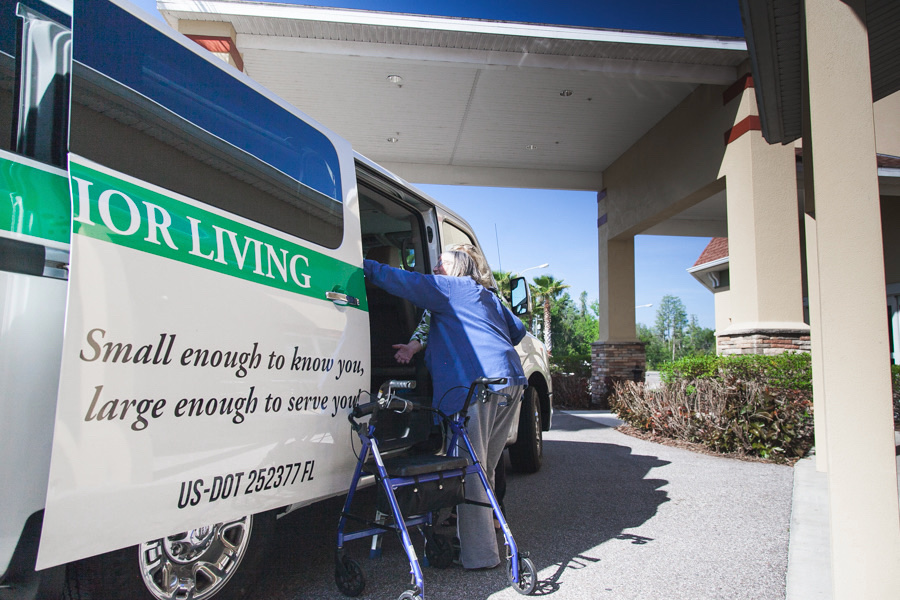
Moving to Florida for Assisted Living – A Guide
Many seniors and their loved ones factor moving states into assisted living. Learn more about Florida assisted living and Medicaid eligibility requirements.

Many seniors and their loved ones factor moving states into assisted living. Learn more about Florida assisted living and Medicaid eligibility requirements.

Cost, level of care, and expected length of stay are the primary differences between an assisted living facility and a skilled nursing facility, or nursing home.
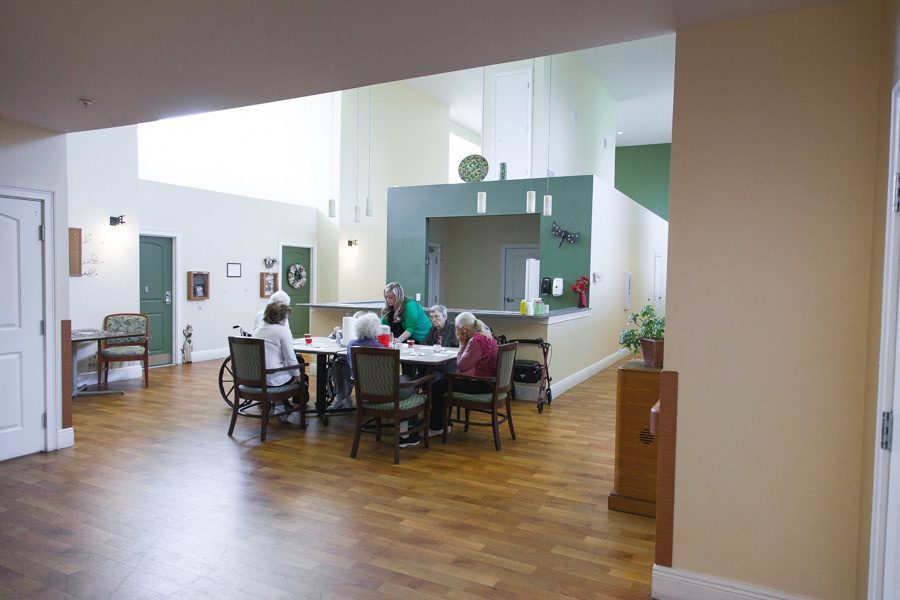
People who are regularly engaging in social interaction maintain healthy cognitive function. Learn about the benefits of social interaction in the elderly.
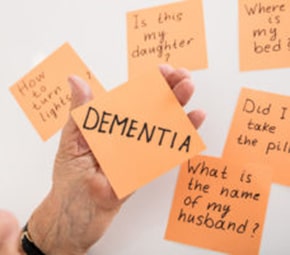
There are many misconceptions about dementia. Check out the latest blog from Angels Senior Living to learn more interesting facts about dementia.
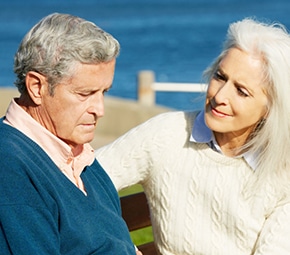
Do you know a senior who suffers from dementia? Check out the latest blog from us to learn more about activities for low functioning seniors with dementia.
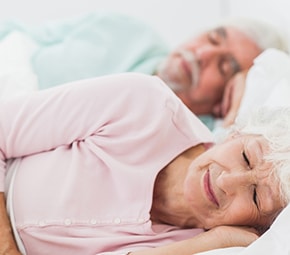
Staying up until two in the morning might not come as easy as it once was during your teenage and young adult years.
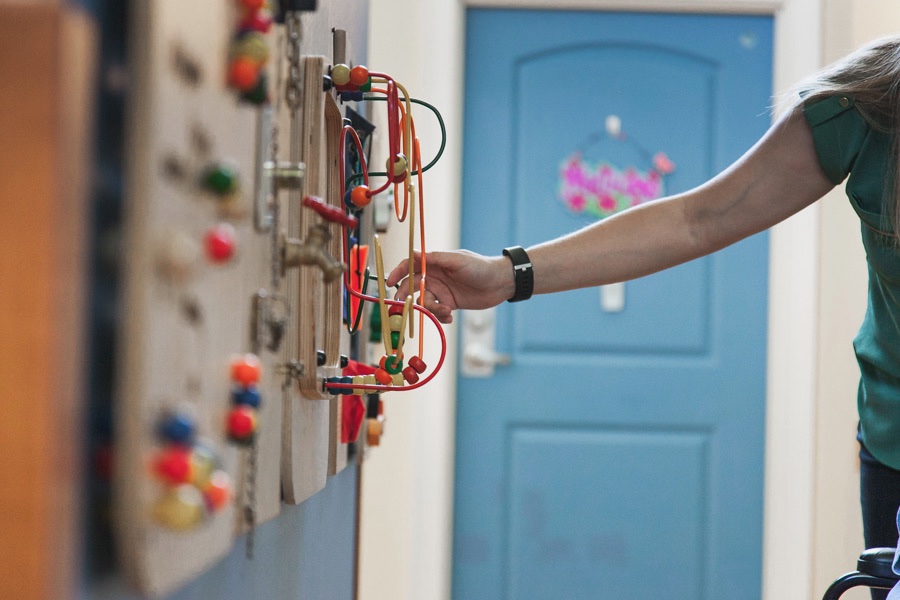
The top 6 physical symptoms of Alzheimer’s Disease include insomnia and impaired motor skills. With the right memory care treatment your loved one can be properly cared for.
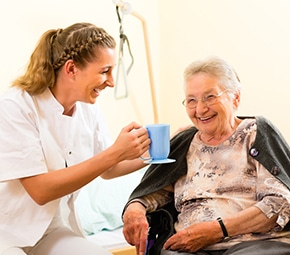
When dealing with dementia or Alzheimer’s, memory care helps work out the brain. Angels Senior Living offers memory care services to aid in brain activity.
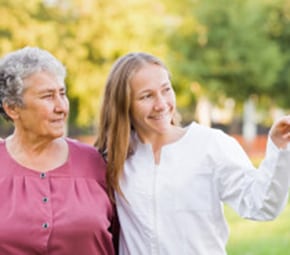
Being alert and keeping track of Alzheimer’s behaviors your loved one may be experiencing can help when it come to memory care and assisted living.
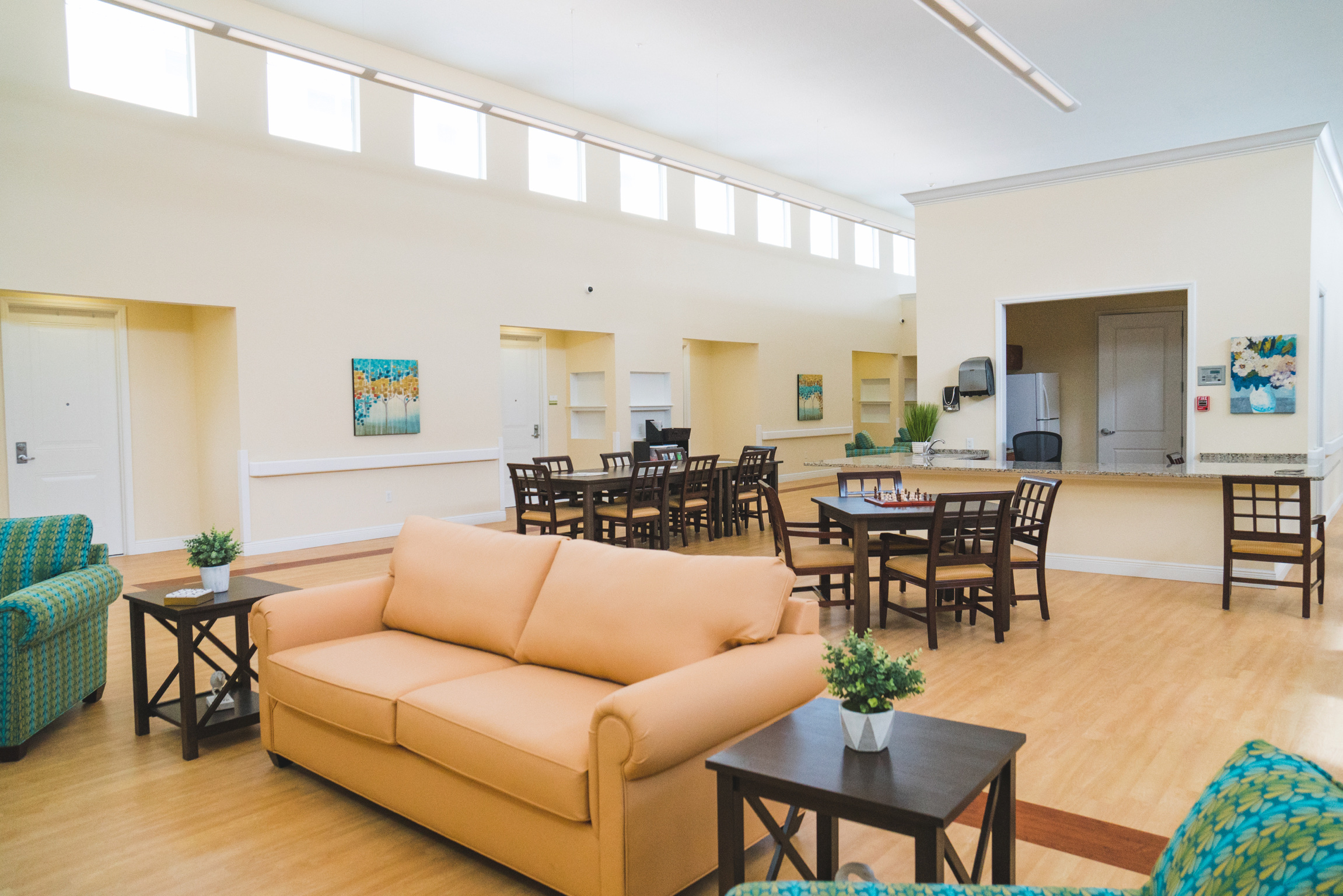
Millions of people must face the reality that their elderly parent is suffering from memory loss everyday, and are hiding dementia.
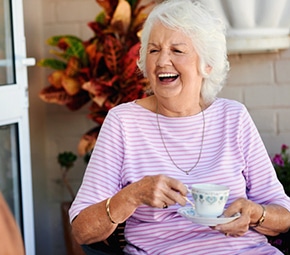
Connecting with someone who is going through memory loss issues can be tough. Angels shares 10 Tips for Effective Communication With A Memory Care Resident.

VISITATION POLICIES AND PROCEDURES
(revised January 2024)
I. Purpose
These Visitation Policies and Procedures are adopted to ensure compliance with Angel Senior Living’s
(the “community”) obligations under section 408.823 of Florida Statutes.
II. In-Person Visitation Policies
a. Visiting Hours. The community will allow each resident to visit in-person with any person of his or her choice, at any time between the hours of 9:00am – 9:00pm at a minimum.
Upon request, the community shall make provisions to extend visiting hours for caregivers and out-of-town guests, and in other similar situations.
b. Length of Visits and Number of Visitors. There is no restriction on the permissible length
of visits or number of visitors, except that the community will not allow the legally
prescribed maximum building occupancy load to be exceeded.
c. Essential Caregivers. A resident may designate a visitor who is a family member, friend, guardian, or other individual as an essential caregiver. The community shall allow in-
person visitation by a resident’s essential caregiver for at least 2 hours daily in addition to any other visitation authorized by the community. The community may not require an essential caregiver to provide necessary care to a resident.
d. Consensual Physical Contact. Consensual physical contact between a resident and his or her visitor is allowed.
e. Special Circumstances. In addition to any other visitation authorized by the community,
residents are allowed in-person visitation in all the following circumstances, unless the resident objects:
i. End-of-life situations.
ii. A resident who was living with family before being admitted to the provider’s care
is struggling with the change in environment and lack of in-person family support.
iii. The resident is making one or more major medical decisions.
iv. A resident is experiencing emotional distress or grieving the loss of a friend or family member who recently died.
v. A resident needs cueing or encouragement to eat or drink which was previously
provided by a family member or caregiver.
vi. A resident who used to talk and interact with others is seldom speaking.
III. Screening, Personal Protective Equipment, and other Infection Control Protocols for
Visitors
The community will adhere to any applicable laws or orders issued by local, state, or federal authorities regarding screening, personal protective equipment (“PPE”), and other infection control protocols for visitors; provided, however, that:
a. Any safety-related requirements will be no more stringent than those established for the community’s staff.
b. Visitors will not be required to submit proof of any vaccination or immunization.
c. The community will NOT prohibit visitation if the specific resident to be visited is quarantined, tested positive, or showing symptoms of a communicable disease. Visitors in these circumstances may be required to wear the same PPE that staff wear to provide care or services to the resident.
The community will provide ongoing infection control education for visitors as needed.
IV. In-Person Visitation Procedures
a. Responsible Staff Member. The Administrator or designee is responsible for ensuring that staff adhere to this Visitation Policy and Procedures.
b. Resident Signature. The resident (or their representative) will read and sign this policy to acknowledge that the resident represents that all his or her visitors will abide by this policy or be subject to suspension from the community.
c. Visitor Compliance. The community will monitor the visitor’s adherence to the Visitation Policies and Procedures.
If a visitor fails to follow the community’s infection prevention and control requirements, after attempting to mitigate concerns, the community shall restrict or revoke visitation.
If a visitor is combative, violent, threatening, or otherwise deemed to be engaging in dangerous or criminal activity in the reasonable judgment of the community, then after
attempting to mitigate concerns, the community shall restrict or revoke visitation.
V. Availability of the Visitation Policies and Procedures
The community will provide the Agency for Health Care Administration (“AHCA”) with a copy of its Visitation Policies and Procedures when applying for initial licensure, licensure renewal, or change of ownership, as applicable.
The community will also make the Visitation Policies and Procedures available to AHCA for review at any time, upon request.
The community will make these Visitation Policies and Procedures easily accessible from the homepage of its website.
Address: 14527 N. Florida Avenue, Tampa, FL 33613
License #6694
VISITATION POLICIES AND PROCEDURES
(revised January 2024)
I. Purpose
These Visitation Policies and Procedures are adopted to ensure compliance with Angel Senior Living’s
(the “community”) obligations under section 408.823 of Florida Statutes.
II. In-Person Visitation Policies
a. Visiting Hours. The community will allow each resident to visit in-person with any person of his or her choice, at any time between the hours of 9:00am – 9:00pm at a minimum.
Upon request, the community shall make provisions to extend visiting hours for caregivers and out-of-town guests, and in other similar situations.
b. Length of Visits and Number of Visitors. There is no restriction on the permissible length
of visits or number of visitors, except that the community will not allow the legally
prescribed maximum building occupancy load to be exceeded.
c. Essential Caregivers. A resident may designate a visitor who is a family member, friend, guardian, or other individual as an essential caregiver. The community shall allow in-
person visitation by a resident’s essential caregiver for at least 2 hours daily in addition to any other visitation authorized by the community. The community may not require an essential caregiver to provide necessary care to a resident.
d. Consensual Physical Contact. Consensual physical contact between a resident and his or her visitor is allowed.
e. Special Circumstances. In addition to any other visitation authorized by the community,
residents are allowed in-person visitation in all the following circumstances, unless the resident objects:
i. End-of-life situations.
ii. A resident who was living with family before being admitted to the provider’s care
is struggling with the change in environment and lack of in-person family support.
iii. The resident is making one or more major medical decisions.
iv. A resident is experiencing emotional distress or grieving the loss of a friend or family member who recently died.
v. A resident needs cueing or encouragement to eat or drink which was previously
provided by a family member or caregiver.
vi. A resident who used to talk and interact with others is seldom speaking.
III. Screening, Personal Protective Equipment, and other Infection Control Protocols for
Visitors
The community will adhere to any applicable laws or orders issued by local, state, or federal authorities regarding screening, personal protective equipment (“PPE”), and other infection control protocols for visitors; provided, however, that:
a. Any safety-related requirements will be no more stringent than those established for the community’s staff.
b. Visitors will not be required to submit proof of any vaccination or immunization.
c. The community will NOT prohibit visitation if the specific resident to be visited is quarantined, tested positive, or showing symptoms of a communicable disease. Visitors in these circumstances may be required to wear the same PPE that staff wear to provide care or services to the resident.
The community will provide ongoing infection control education for visitors as needed.
IV. In-Person Visitation Procedures
a. Responsible Staff Member. The Administrator or designee is responsible for ensuring that staff adhere to this Visitation Policy and Procedures.
b. Resident Signature. The resident (or their representative) will read and sign this policy to acknowledge that the resident represents that all his or her visitors will abide by this policy or be subject to suspension from the community.
c. Visitor Compliance. The community will monitor the visitor’s adherence to the Visitation Policies and Procedures.
If a visitor fails to follow the community’s infection prevention and control requirements, after attempting to mitigate concerns, the community shall restrict or revoke visitation.
If a visitor is combative, violent, threatening, or otherwise deemed to be engaging in dangerous or criminal activity in the reasonable judgment of the community, then after
attempting to mitigate concerns, the community shall restrict or revoke visitation.
V. Availability of the Visitation Policies and Procedures
The community will provide the Agency for Health Care Administration (“AHCA”) with a copy of its Visitation Policies and Procedures when applying for initial licensure, licensure renewal, or change of ownership, as applicable.
The community will also make the Visitation Policies and Procedures available to AHCA for review at any time, upon request.
The community will make these Visitation Policies and Procedures easily accessible from the homepage of its website.
Address: 21021 Betel Palm Lane, Land O’ Lakes, FL 34638
License #12268
VISITATION POLICIES AND PROCEDURES
(revised January 2024)
I. Purpose
These Visitation Policies and Procedures are adopted to ensure compliance with Angel Senior Living’s
(the “community”) obligations under section 408.823 of Florida Statutes.
II. In-Person Visitation Policies
a. Visiting Hours. The community will allow each resident to visit in-person with any person of his or her choice, at any time between the hours of 9:00am – 9:00pm at a minimum.
Upon request, the community shall make provisions to extend visiting hours for caregivers and out-of-town guests, and in other similar situations.
b. Length of Visits and Number of Visitors. There is no restriction on the permissible length
of visits or number of visitors, except that the community will not allow the legally
prescribed maximum building occupancy load to be exceeded.
c. Essential Caregivers. A resident may designate a visitor who is a family member, friend, guardian, or other individual as an essential caregiver. The community shall allow in-
person visitation by a resident’s essential caregiver for at least 2 hours daily in addition to any other visitation authorized by the community. The community may not require an essential caregiver to provide necessary care to a resident.
d. Consensual Physical Contact. Consensual physical contact between a resident and his or her visitor is allowed.
e. Special Circumstances. In addition to any other visitation authorized by the community,
residents are allowed in-person visitation in all the following circumstances, unless the resident objects:
i. End-of-life situations.
ii. A resident who was living with family before being admitted to the provider’s care
is struggling with the change in environment and lack of in-person family support.
iii. The resident is making one or more major medical decisions.
iv. A resident is experiencing emotional distress or grieving the loss of a friend or family member who recently died.
v. A resident needs cueing or encouragement to eat or drink which was previously
provided by a family member or caregiver.
vi. A resident who used to talk and interact with others is seldom speaking.
III. Screening, Personal Protective Equipment, and other Infection Control Protocols for
Visitors
The community will adhere to any applicable laws or orders issued by local, state, or federal authorities regarding screening, personal protective equipment (“PPE”), and other infection control protocols for visitors; provided, however, that:
a. Any safety-related requirements will be no more stringent than those established for the community’s staff.
b. Visitors will not be required to submit proof of any vaccination or immunization.
c. The community will NOT prohibit visitation if the specific resident to be visited is quarantined, tested positive, or showing symptoms of a communicable disease. Visitors in these circumstances may be required to wear the same PPE that staff wear to provide care or services to the resident.
The community will provide ongoing infection control education for visitors as needed.
IV. In-Person Visitation Procedures
a. Responsible Staff Member. The Administrator or designee is responsible for ensuring that staff adhere to this Visitation Policy and Procedures.
b. Resident Signature. The resident (or their representative) will read and sign this policy to acknowledge that the resident represents that all his or her visitors will abide by this policy or be subject to suspension from the community.
c. Visitor Compliance. The community will monitor the visitor’s adherence to the Visitation Policies and Procedures.
If a visitor fails to follow the community’s infection prevention and control requirements, after attempting to mitigate concerns, the community shall restrict or revoke visitation.
If a visitor is combative, violent, threatening, or otherwise deemed to be engaging in dangerous or criminal activity in the reasonable judgment of the community, then after
attempting to mitigate concerns, the community shall restrict or revoke visitation.
V. Availability of the Visitation Policies and Procedures
The community will provide the Agency for Health Care Administration (“AHCA”) with a copy of its Visitation Policies and Procedures when applying for initial licensure, licensure renewal, or change of ownership, as applicable.
The community will also make the Visitation Policies and Procedures available to AHCA for review at any time, upon request.
The community will make these Visitation Policies and Procedures easily accessible from the homepage of its website.
Address: 14712 N. 42nd Street, Tampa, FL 33613
License #12507
VISITATION POLICIES AND PROCEDURES
(revised January 2024)
I. Purpose
These Visitation Policies and Procedures are adopted to ensure compliance with Angel Senior Living’s
(the “community”) obligations under section 408.823 of Florida Statutes.
II. In-Person Visitation Policies
a. Visiting Hours. The community will allow each resident to visit in-person with any person of his or her choice, at any time between the hours of 9:00am – 9:00pm at a minimum.
Upon request, the community shall make provisions to extend visiting hours for caregivers and out-of-town guests, and in other similar situations.
b. Length of Visits and Number of Visitors. There is no restriction on the permissible length
of visits or number of visitors, except that the community will not allow the legally
prescribed maximum building occupancy load to be exceeded.
c. Essential Caregivers. A resident may designate a visitor who is a family member, friend, guardian, or other individual as an essential caregiver. The community shall allow in-
person visitation by a resident’s essential caregiver for at least 2 hours daily in addition to any other visitation authorized by the community. The community may not require an essential caregiver to provide necessary care to a resident.
d. Consensual Physical Contact. Consensual physical contact between a resident and his or her visitor is allowed.
e. Special Circumstances. In addition to any other visitation authorized by the community,
residents are allowed in-person visitation in all the following circumstances, unless the resident objects:
i. End-of-life situations.
ii. A resident who was living with family before being admitted to the provider’s care
is struggling with the change in environment and lack of in-person family support.
iii. The resident is making one or more major medical decisions.
iv. A resident is experiencing emotional distress or grieving the loss of a friend or family member who recently died.
v. A resident needs cueing or encouragement to eat or drink which was previously
provided by a family member or caregiver.
vi. A resident who used to talk and interact with others is seldom speaking.
III. Screening, Personal Protective Equipment, and other Infection Control Protocols for
Visitors
The community will adhere to any applicable laws or orders issued by local, state, or federal authorities regarding screening, personal protective equipment (“PPE”), and other infection control protocols for visitors; provided, however, that:
a. Any safety-related requirements will be no more stringent than those established for the community’s staff.
b. Visitors will not be required to submit proof of any vaccination or immunization.
c. The community will NOT prohibit visitation if the specific resident to be visited is quarantined, tested positive, or showing symptoms of a communicable disease. Visitors in these circumstances may be required to wear the same PPE that staff wear to provide care or services to the resident.
The community will provide ongoing infection control education for visitors as needed.
IV. In-Person Visitation Procedures
a. Responsible Staff Member. The Administrator or designee is responsible for ensuring that staff adhere to this Visitation Policy and Procedures.
b. Resident Signature. The resident (or their representative) will read and sign this policy to acknowledge that the resident represents that all his or her visitors will abide by this policy or be subject to suspension from the community.
c. Visitor Compliance. The community will monitor the visitor’s adherence to the Visitation Policies and Procedures.
If a visitor fails to follow the community’s infection prevention and control requirements, after attempting to mitigate concerns, the community shall restrict or revoke visitation.
If a visitor is combative, violent, threatening, or otherwise deemed to be engaging in dangerous or criminal activity in the reasonable judgment of the community, then after
attempting to mitigate concerns, the community shall restrict or revoke visitation.
V. Availability of the Visitation Policies and Procedures
The community will provide the Agency for Health Care Administration (“AHCA”) with a copy of its Visitation Policies and Procedures when applying for initial licensure, licensure renewal, or change of ownership, as applicable.
The community will also make the Visitation Policies and Procedures available to AHCA for review at any time, upon request.
The community will make these Visitation Policies and Procedures easily accessible from the homepage of its website.
Address: 1655 Curlew Road, Palm Harbor, FL 34683
License #8733
VISITATION POLICIES AND PROCEDURES
(revised January 2024)
I. Purpose
These Visitation Policies and Procedures are adopted to ensure compliance with Angel Senior Living’s
(the “community”) obligations under section 408.823 of Florida Statutes.
II. In-Person Visitation Policies
a. Visiting Hours. The community will allow each resident to visit in-person with any person of his or her choice, at any time between the hours of 9:00am – 9:00pm at a minimum.
Upon request, the community shall make provisions to extend visiting hours for caregivers and out-of-town guests, and in other similar situations.
b. Length of Visits and Number of Visitors. There is no restriction on the permissible length
of visits or number of visitors, except that the community will not allow the legally
prescribed maximum building occupancy load to be exceeded.
c. Essential Caregivers. A resident may designate a visitor who is a family member, friend, guardian, or other individual as an essential caregiver. The community shall allow in-
person visitation by a resident’s essential caregiver for at least 2 hours daily in addition to any other visitation authorized by the community. The community may not require an essential caregiver to provide necessary care to a resident.
d. Consensual Physical Contact. Consensual physical contact between a resident and his or her visitor is allowed.
e. Special Circumstances. In addition to any other visitation authorized by the community,
residents are allowed in-person visitation in all the following circumstances, unless the resident objects:
i. End-of-life situations.
ii. A resident who was living with family before being admitted to the provider’s care
is struggling with the change in environment and lack of in-person family support.
iii. The resident is making one or more major medical decisions.
iv. A resident is experiencing emotional distress or grieving the loss of a friend or family member who recently died.
v. A resident needs cueing or encouragement to eat or drink which was previously
provided by a family member or caregiver.
vi. A resident who used to talk and interact with others is seldom speaking.
III. Screening, Personal Protective Equipment, and other Infection Control Protocols for
Visitors
The community will adhere to any applicable laws or orders issued by local, state, or federal authorities regarding screening, personal protective equipment (“PPE”), and other infection control protocols for visitors; provided, however, that:
a. Any safety-related requirements will be no more stringent than those established for the community’s staff.
b. Visitors will not be required to submit proof of any vaccination or immunization.
c. The community will NOT prohibit visitation if the specific resident to be visited is quarantined, tested positive, or showing symptoms of a communicable disease. Visitors in these circumstances may be required to wear the same PPE that staff wear to provide care or services to the resident.
The community will provide ongoing infection control education for visitors as needed.
IV. In-Person Visitation Procedures
a. Responsible Staff Member. The Administrator or designee is responsible for ensuring that staff adhere to this Visitation Policy and Procedures.
b. Resident Signature. The resident (or their representative) will read and sign this policy to acknowledge that the resident represents that all his or her visitors will abide by this policy or be subject to suspension from the community.
c. Visitor Compliance. The community will monitor the visitor’s adherence to the Visitation Policies and Procedures.
If a visitor fails to follow the community’s infection prevention and control requirements, after attempting to mitigate concerns, the community shall restrict or revoke visitation.
If a visitor is combative, violent, threatening, or otherwise deemed to be engaging in dangerous or criminal activity in the reasonable judgment of the community, then after
attempting to mitigate concerns, the community shall restrict or revoke visitation.
V. Availability of the Visitation Policies and Procedures
The community will provide the Agency for Health Care Administration (“AHCA”) with a copy of its Visitation Policies and Procedures when applying for initial licensure, licensure renewal, or change of ownership, as applicable.
The community will also make the Visitation Policies and Procedures available to AHCA for review at any time, upon request.
The community will make these Visitation Policies and Procedures easily accessible from the homepage of its website.
Address: 3720 West Bay to Bay Blvd. Tampa, FL 33629
License #9298
VISITATION POLICIES AND PROCEDURES
(revised January 2024)
I. Purpose
These Visitation Policies and Procedures are adopted to ensure compliance with Angel Senior Living’s
(the “community”) obligations under section 408.823 of Florida Statutes.
II. In-Person Visitation Policies
a. Visiting Hours. The community will allow each resident to visit in-person with any person of his or her choice, at any time between the hours of 9:00am – 9:00pm at a minimum.
Upon request, the community shall make provisions to extend visiting hours for caregivers and out-of-town guests, and in other similar situations.
b. Length of Visits and Number of Visitors. There is no restriction on the permissible length
of visits or number of visitors, except that the community will not allow the legally
prescribed maximum building occupancy load to be exceeded.
c. Essential Caregivers. A resident may designate a visitor who is a family member, friend, guardian, or other individual as an essential caregiver. The community shall allow in-
person visitation by a resident’s essential caregiver for at least 2 hours daily in addition to any other visitation authorized by the community. The community may not require an essential caregiver to provide necessary care to a resident.
d. Consensual Physical Contact. Consensual physical contact between a resident and his or her visitor is allowed.
e. Special Circumstances. In addition to any other visitation authorized by the community,
residents are allowed in-person visitation in all the following circumstances, unless the resident objects:
i. End-of-life situations.
ii. A resident who was living with family before being admitted to the provider’s care
is struggling with the change in environment and lack of in-person family support.
iii. The resident is making one or more major medical decisions.
iv. A resident is experiencing emotional distress or grieving the loss of a friend or family member who recently died.
v. A resident needs cueing or encouragement to eat or drink which was previously
provided by a family member or caregiver.
vi. A resident who used to talk and interact with others is seldom speaking.
III. Screening, Personal Protective Equipment, and other Infection Control Protocols for
Visitors
The community will adhere to any applicable laws or orders issued by local, state, or federal authorities regarding screening, personal protective equipment (“PPE”), and other infection control protocols for visitors; provided, however, that:
a. Any safety-related requirements will be no more stringent than those established for the community’s staff.
b. Visitors will not be required to submit proof of any vaccination or immunization.
c. The community will NOT prohibit visitation if the specific resident to be visited is quarantined, tested positive, or showing symptoms of a communicable disease. Visitors in these circumstances may be required to wear the same PPE that staff wear to provide care or services to the resident.
The community will provide ongoing infection control education for visitors as needed.
IV. In-Person Visitation Procedures
a. Responsible Staff Member. The Administrator or designee is responsible for ensuring that staff adhere to this Visitation Policy and Procedures.
b. Resident Signature. The resident (or their representative) will read and sign this policy to acknowledge that the resident represents that all his or her visitors will abide by this policy or be subject to suspension from the community.
c. Visitor Compliance. The community will monitor the visitor’s adherence to the Visitation Policies and Procedures.
If a visitor fails to follow the community’s infection prevention and control requirements, after attempting to mitigate concerns, the community shall restrict or revoke visitation.
If a visitor is combative, violent, threatening, or otherwise deemed to be engaging in dangerous or criminal activity in the reasonable judgment of the community, then after
attempting to mitigate concerns, the community shall restrict or revoke visitation.
V. Availability of the Visitation Policies and Procedures
The community will provide the Agency for Health Care Administration (“AHCA”) with a copy of its Visitation Policies and Procedures when applying for initial licensure, licensure renewal, or change of ownership, as applicable.
The community will also make the Visitation Policies and Procedures available to AHCA for review at any time, upon request.
The community will make these Visitation Policies and Procedures easily accessible from the homepage of its website.
Address: 5750 S. Honore Avenue, Sarasota, FL 34233
License #13217
VISITATION POLICIES AND PROCEDURES
(revised January 2024)
I. Purpose
These Visitation Policies and Procedures are adopted to ensure compliance with Angel Senior Living’s
(the “community”) obligations under section 408.823 of Florida Statutes.
II. In-Person Visitation Policies
a. Visiting Hours. The community will allow each resident to visit in-person with any person of his or her choice, at any time between the hours of 9:00am – 9:00pm at a minimum.
Upon request, the community shall make provisions to extend visiting hours for caregivers and out-of-town guests, and in other similar situations.
b. Length of Visits and Number of Visitors. There is no restriction on the permissible length
of visits or number of visitors, except that the community will not allow the legally
prescribed maximum building occupancy load to be exceeded.
c. Essential Caregivers. A resident may designate a visitor who is a family member, friend, guardian, or other individual as an essential caregiver. The community shall allow in-
person visitation by a resident’s essential caregiver for at least 2 hours daily in addition to any other visitation authorized by the community. The community may not require an essential caregiver to provide necessary care to a resident.
d. Consensual Physical Contact. Consensual physical contact between a resident and his or her visitor is allowed.
e. Special Circumstances. In addition to any other visitation authorized by the community,
residents are allowed in-person visitation in all the following circumstances, unless the resident objects:
i. End-of-life situations.
ii. A resident who was living with family before being admitted to the provider’s care
is struggling with the change in environment and lack of in-person family support.
iii. The resident is making one or more major medical decisions.
iv. A resident is experiencing emotional distress or grieving the loss of a friend or family member who recently died.
v. A resident needs cueing or encouragement to eat or drink which was previously
provided by a family member or caregiver.
vi. A resident who used to talk and interact with others is seldom speaking.
III. Screening, Personal Protective Equipment, and other Infection Control Protocols for
Visitors
The community will adhere to any applicable laws or orders issued by local, state, or federal authorities regarding screening, personal protective equipment (“PPE”), and other infection control protocols for visitors; provided, however, that:
a. Any safety-related requirements will be no more stringent than those established for the community’s staff.
b. Visitors will not be required to submit proof of any vaccination or immunization.
c. The community will NOT prohibit visitation if the specific resident to be visited is quarantined, tested positive, or showing symptoms of a communicable disease. Visitors in these circumstances may be required to wear the same PPE that staff wear to provide care or services to the resident.
The community will provide ongoing infection control education for visitors as needed.
IV. In-Person Visitation Procedures
a. Responsible Staff Member. The Administrator or designee is responsible for ensuring that staff adhere to this Visitation Policy and Procedures.
b. Resident Signature. The resident (or their representative) will read and sign this policy to acknowledge that the resident represents that all his or her visitors will abide by this policy or be subject to suspension from the community.
c. Visitor Compliance. The community will monitor the visitor’s adherence to the Visitation Policies and Procedures.
If a visitor fails to follow the community’s infection prevention and control requirements, after attempting to mitigate concerns, the community shall restrict or revoke visitation.
If a visitor is combative, violent, threatening, or otherwise deemed to be engaging in dangerous or criminal activity in the reasonable judgment of the community, then after
attempting to mitigate concerns, the community shall restrict or revoke visitation.
V. Availability of the Visitation Policies and Procedures
The community will provide the Agency for Health Care Administration (“AHCA”) with a copy of its Visitation Policies and Procedures when applying for initial licensure, licensure renewal, or change of ownership, as applicable.
The community will also make the Visitation Policies and Procedures available to AHCA for review at any time, upon request.
The community will make these Visitation Policies and Procedures easily accessible from the homepage of its website.
Address: 3330 S. MacDill Ave., Tampa, FL 33629
License #8348
VISITATION POLICIES AND PROCEDURES
(revised January 2024)
I. Purpose
These Visitation Policies and Procedures are adopted to ensure compliance with Angel Senior Living’s
(the “community”) obligations under section 408.823 of Florida Statutes.
II. In-Person Visitation Policies
a. Visiting Hours. The community will allow each resident to visit in-person with any person of his or her choice, at any time between the hours of 9:00am – 9:00pm at a minimum.
Upon request, the community shall make provisions to extend visiting hours for caregivers and out-of-town guests, and in other similar situations.
b. Length of Visits and Number of Visitors. There is no restriction on the permissible length
of visits or number of visitors, except that the community will not allow the legally
prescribed maximum building occupancy load to be exceeded.
c. Essential Caregivers. A resident may designate a visitor who is a family member, friend, guardian, or other individual as an essential caregiver. The community shall allow in-
person visitation by a resident’s essential caregiver for at least 2 hours daily in addition to any other visitation authorized by the community. The community may not require an essential caregiver to provide necessary care to a resident.
d. Consensual Physical Contact. Consensual physical contact between a resident and his or her visitor is allowed.
e. Special Circumstances. In addition to any other visitation authorized by the community,
residents are allowed in-person visitation in all the following circumstances, unless the resident objects:
i. End-of-life situations.
ii. A resident who was living with family before being admitted to the provider’s care
is struggling with the change in environment and lack of in-person family support.
iii. The resident is making one or more major medical decisions.
iv. A resident is experiencing emotional distress or grieving the loss of a friend or family member who recently died.
v. A resident needs cueing or encouragement to eat or drink which was previously
provided by a family member or caregiver.
vi. A resident who used to talk and interact with others is seldom speaking.
III. Screening, Personal Protective Equipment, and other Infection Control Protocols for
Visitors
The community will adhere to any applicable laws or orders issued by local, state, or federal authorities regarding screening, personal protective equipment (“PPE”), and other infection control protocols for visitors; provided, however, that:
a. Any safety-related requirements will be no more stringent than those established for the community’s staff.
b. Visitors will not be required to submit proof of any vaccination or immunization.
c. The community will NOT prohibit visitation if the specific resident to be visited is quarantined, tested positive, or showing symptoms of a communicable disease. Visitors in these circumstances may be required to wear the same PPE that staff wear to provide care or services to the resident.
The community will provide ongoing infection control education for visitors as needed.
IV. In-Person Visitation Procedures
a. Responsible Staff Member. The Administrator or designee is responsible for ensuring that staff adhere to this Visitation Policy and Procedures.
b. Resident Signature. The resident (or their representative) will read and sign this policy to acknowledge that the resident represents that all his or her visitors will abide by this policy or be subject to suspension from the community.
c. Visitor Compliance. The community will monitor the visitor’s adherence to the Visitation Policies and Procedures.
If a visitor fails to follow the community’s infection prevention and control requirements, after attempting to mitigate concerns, the community shall restrict or revoke visitation.
If a visitor is combative, violent, threatening, or otherwise deemed to be engaging in dangerous or criminal activity in the reasonable judgment of the community, then after
attempting to mitigate concerns, the community shall restrict or revoke visitation.
V. Availability of the Visitation Policies and Procedures
The community will provide the Agency for Health Care Administration (“AHCA”) with a copy of its Visitation Policies and Procedures when applying for initial licensure, licensure renewal, or change of ownership, as applicable.
The community will also make the Visitation Policies and Procedures available to AHCA for review at any time, upon request.
The community will make these Visitation Policies and Procedures easily accessible from the homepage of its website.
VISITATION POLICIES AND PROCEDURES
(revised January 2024)
I. Purpose
These Visitation Policies and Procedures are adopted to ensure compliance with Angel Senior Living’s
(the “community”) obligations under section 408.823 of Florida Statutes.
II. In-Person Visitation Policies
a. Visiting Hours. The community will allow each resident to visit in-person with any person of his or her choice, at any time between the hours of 9:00am – 9:00pm at a minimum.
Upon request, the community shall make provisions to extend visiting hours for caregivers and out-of-town guests, and in other similar situations.
b. Length of Visits and Number of Visitors. There is no restriction on the permissible length
of visits or number of visitors, except that the community will not allow the legally
prescribed maximum building occupancy load to be exceeded.
c. Essential Caregivers. A resident may designate a visitor who is a family member, friend, guardian, or other individual as an essential caregiver. The community shall allow in-
person visitation by a resident’s essential caregiver for at least 2 hours daily in addition to any other visitation authorized by the community. The community may not require an essential caregiver to provide necessary care to a resident.
d. Consensual Physical Contact. Consensual physical contact between a resident and his or her visitor is allowed.
e. Special Circumstances. In addition to any other visitation authorized by the community,
residents are allowed in-person visitation in all the following circumstances, unless the resident objects:
i. End-of-life situations.
ii. A resident who was living with family before being admitted to the provider’s care
is struggling with the change in environment and lack of in-person family support.
iii. The resident is making one or more major medical decisions.
iv. A resident is experiencing emotional distress or grieving the loss of a friend or family member who recently died.
v. A resident needs cueing or encouragement to eat or drink which was previously
provided by a family member or caregiver.
vi. A resident who used to talk and interact with others is seldom speaking.
III. Screening, Personal Protective Equipment, and other Infection Control Protocols for
Visitors
The community will adhere to any applicable laws or orders issued by local, state, or federal authorities regarding screening, personal protective equipment (“PPE”), and other infection control protocols for visitors; provided, however, that:
a. Any safety-related requirements will be no more stringent than those established for the community’s staff.
b. Visitors will not be required to submit proof of any vaccination or immunization.
c. The community will NOT prohibit visitation if the specific resident to be visited is quarantined, tested positive, or showing symptoms of a communicable disease. Visitors in these circumstances may be required to wear the same PPE that staff wear to provide care or services to the resident.
The community will provide ongoing infection control education for visitors as needed.
IV. In-Person Visitation Procedures
a. Responsible Staff Member. The Administrator or designee is responsible for ensuring that staff adhere to this Visitation Policy and Procedures.
b. Resident Signature. The resident (or their representative) will read and sign this policy to acknowledge that the resident represents that all his or her visitors will abide by this policy or be subject to suspension from the community.
c. Visitor Compliance. The community will monitor the visitor’s adherence to the Visitation Policies and Procedures.
If a visitor fails to follow the community’s infection prevention and control requirements, after attempting to mitigate concerns, the community shall restrict or revoke visitation.
If a visitor is combative, violent, threatening, or otherwise deemed to be engaging in dangerous or criminal activity in the reasonable judgment of the community, then after
attempting to mitigate concerns, the community shall restrict or revoke visitation.
V. Availability of the Visitation Policies and Procedures
The community will provide the Agency for Health Care Administration (“AHCA”) with a copy of its Visitation Policies and Procedures when applying for initial licensure, licensure renewal, or change of ownership, as applicable.
The community will also make the Visitation Policies and Procedures available to AHCA for review at any time, upon request.
The community will make these Visitation Policies and Procedures easily accessible from the homepage of its website.
Address: 18420 Exciting Idlewild Blvd, Lutz, FL 33548
License #13750
VISITATION POLICIES AND PROCEDURES
(revised January 2024)
I. Purpose
These Visitation Policies and Procedures are adopted to ensure compliance with Angel Senior Living’s
(the “community”) obligations under section 408.823 of Florida Statutes.
II. In-Person Visitation Policies
a. Visiting Hours. The community will allow each resident to visit in-person with any person of his or her choice, at any time between the hours of 9:00am – 9:00pm at a minimum.
Upon request, the community shall make provisions to extend visiting hours for caregivers and out-of-town guests, and in other similar situations.
b. Length of Visits and Number of Visitors. There is no restriction on the permissible length
of visits or number of visitors, except that the community will not allow the legally
prescribed maximum building occupancy load to be exceeded.
c. Essential Caregivers. A resident may designate a visitor who is a family member, friend, guardian, or other individual as an essential caregiver. The community shall allow in-
person visitation by a resident’s essential caregiver for at least 2 hours daily in addition to any other visitation authorized by the community. The community may not require an essential caregiver to provide necessary care to a resident.
d. Consensual Physical Contact. Consensual physical contact between a resident and his or her visitor is allowed.
e. Special Circumstances. In addition to any other visitation authorized by the community,
residents are allowed in-person visitation in all the following circumstances, unless the resident objects:
i. End-of-life situations.
ii. A resident who was living with family before being admitted to the provider’s care
is struggling with the change in environment and lack of in-person family support.
iii. The resident is making one or more major medical decisions.
iv. A resident is experiencing emotional distress or grieving the loss of a friend or family member who recently died.
v. A resident needs cueing or encouragement to eat or drink which was previously
provided by a family member or caregiver.
vi. A resident who used to talk and interact with others is seldom speaking.
III. Screening, Personal Protective Equipment, and other Infection Control Protocols for
Visitors
The community will adhere to any applicable laws or orders issued by local, state, or federal authorities regarding screening, personal protective equipment (“PPE”), and other infection control protocols for visitors; provided, however, that:
a. Any safety-related requirements will be no more stringent than those established for the community’s staff.
b. Visitors will not be required to submit proof of any vaccination or immunization.
c. The community will NOT prohibit visitation if the specific resident to be visited is quarantined, tested positive, or showing symptoms of a communicable disease. Visitors in these circumstances may be required to wear the same PPE that staff wear to provide care or services to the resident.
The community will provide ongoing infection control education for visitors as needed.
IV. In-Person Visitation Procedures
a. Responsible Staff Member. The Administrator or designee is responsible for ensuring that staff adhere to this Visitation Policy and Procedures.
b. Resident Signature. The resident (or their representative) will read and sign this policy to acknowledge that the resident represents that all his or her visitors will abide by this policy or be subject to suspension from the community.
c. Visitor Compliance. The community will monitor the visitor’s adherence to the Visitation Policies and Procedures.
If a visitor fails to follow the community’s infection prevention and control requirements, after attempting to mitigate concerns, the community shall restrict or revoke visitation.
If a visitor is combative, violent, threatening, or otherwise deemed to be engaging in dangerous or criminal activity in the reasonable judgment of the community, then after
attempting to mitigate concerns, the community shall restrict or revoke visitation.
V. Availability of the Visitation Policies and Procedures
The community will provide the Agency for Health Care Administration (“AHCA”) with a copy of its Visitation Policies and Procedures when applying for initial licensure, licensure renewal, or change of ownership, as applicable.
The community will also make the Visitation Policies and Procedures available to AHCA for review at any time, upon request.
The community will make these Visitation Policies and Procedures easily accessible from the homepage of its website.
Address: 3175 Belcher Road, Dunedin, FL 34698
License #10034
VISITATION POLICIES AND PROCEDURES
(revised January 2024)
I. Purpose
These Visitation Policies and Procedures are adopted to ensure compliance with Angel Senior Living’s
(the “community”) obligations under section 408.823 of Florida Statutes.
II. In-Person Visitation Policies
a. Visiting Hours. The community will allow each resident to visit in-person with any person of his or her choice, at any time between the hours of 9:00am – 9:00pm at a minimum.
Upon request, the community shall make provisions to extend visiting hours for caregivers and out-of-town guests, and in other similar situations.
b. Length of Visits and Number of Visitors. There is no restriction on the permissible length
of visits or number of visitors, except that the community will not allow the legally
prescribed maximum building occupancy load to be exceeded.
c. Essential Caregivers. A resident may designate a visitor who is a family member, friend, guardian, or other individual as an essential caregiver. The community shall allow in-
person visitation by a resident’s essential caregiver for at least 2 hours daily in addition to any other visitation authorized by the community. The community may not require an essential caregiver to provide necessary care to a resident.
d. Consensual Physical Contact. Consensual physical contact between a resident and his or her visitor is allowed.
e. Special Circumstances. In addition to any other visitation authorized by the community,
residents are allowed in-person visitation in all the following circumstances, unless the resident objects:
i. End-of-life situations.
ii. A resident who was living with family before being admitted to the provider’s care
is struggling with the change in environment and lack of in-person family support.
iii. The resident is making one or more major medical decisions.
iv. A resident is experiencing emotional distress or grieving the loss of a friend or family member who recently died.
v. A resident needs cueing or encouragement to eat or drink which was previously
provided by a family member or caregiver.
vi. A resident who used to talk and interact with others is seldom speaking.
III. Screening, Personal Protective Equipment, and other Infection Control Protocols for
Visitors
The community will adhere to any applicable laws or orders issued by local, state, or federal authorities regarding screening, personal protective equipment (“PPE”), and other infection control protocols for visitors; provided, however, that:
a. Any safety-related requirements will be no more stringent than those established for the community’s staff.
b. Visitors will not be required to submit proof of any vaccination or immunization.
c. The community will NOT prohibit visitation if the specific resident to be visited is quarantined, tested positive, or showing symptoms of a communicable disease. Visitors in these circumstances may be required to wear the same PPE that staff wear to provide care or services to the resident.
The community will provide ongoing infection control education for visitors as needed.
IV. In-Person Visitation Procedures
a. Responsible Staff Member. The Administrator or designee is responsible for ensuring that staff adhere to this Visitation Policy and Procedures.
b. Resident Signature. The resident (or their representative) will read and sign this policy to acknowledge that the resident represents that all his or her visitors will abide by this policy or be subject to suspension from the community.
c. Visitor Compliance. The community will monitor the visitor’s adherence to the Visitation Policies and Procedures.
If a visitor fails to follow the community’s infection prevention and control requirements, after attempting to mitigate concerns, the community shall restrict or revoke visitation.
If a visitor is combative, violent, threatening, or otherwise deemed to be engaging in dangerous or criminal activity in the reasonable judgment of the community, then after
attempting to mitigate concerns, the community shall restrict or revoke visitation.
V. Availability of the Visitation Policies and Procedures
The community will provide the Agency for Health Care Administration (“AHCA”) with a copy of its Visitation Policies and Procedures when applying for initial licensure, licensure renewal, or change of ownership, as applicable.
The community will also make the Visitation Policies and Procedures available to AHCA for review at any time, upon request.
The community will make these Visitation Policies and Procedures easily accessible from the homepage of its website.
VISITATION POLICIES AND PROCEDURES
(revised January 2024)
I. Purpose
These Visitation Policies and Procedures are adopted to ensure compliance with Angel Senior Living’s
(the “community”) obligations under section 408.823 of Florida Statutes.
II. In-Person Visitation Policies
a. Visiting Hours. The community will allow each resident to visit in-person with any person of his or her choice, at any time between the hours of 9:00am – 9:00pm at a minimum.
Upon request, the community shall make provisions to extend visiting hours for caregivers and out-of-town guests, and in other similar situations.
b. Length of Visits and Number of Visitors. There is no restriction on the permissible length
of visits or number of visitors, except that the community will not allow the legally
prescribed maximum building occupancy load to be exceeded.
c. Essential Caregivers. A resident may designate a visitor who is a family member, friend, guardian, or other individual as an essential caregiver. The community shall allow in-
person visitation by a resident’s essential caregiver for at least 2 hours daily in addition to any other visitation authorized by the community. The community may not require an essential caregiver to provide necessary care to a resident.
d. Consensual Physical Contact. Consensual physical contact between a resident and his or her visitor is allowed.
e. Special Circumstances. In addition to any other visitation authorized by the community,
residents are allowed in-person visitation in all the following circumstances, unless the resident objects:
i. End-of-life situations.
ii. A resident who was living with family before being admitted to the provider’s care
is struggling with the change in environment and lack of in-person family support.
iii. The resident is making one or more major medical decisions.
iv. A resident is experiencing emotional distress or grieving the loss of a friend or family member who recently died.
v. A resident needs cueing or encouragement to eat or drink which was previously
provided by a family member or caregiver.
vi. A resident who used to talk and interact with others is seldom speaking.
III. Screening, Personal Protective Equipment, and other Infection Control Protocols for
Visitors
The community will adhere to any applicable laws or orders issued by local, state, or federal authorities regarding screening, personal protective equipment (“PPE”), and other infection control protocols for visitors; provided, however, that:
a. Any safety-related requirements will be no more stringent than those established for the community’s staff.
b. Visitors will not be required to submit proof of any vaccination or immunization.
c. The community will NOT prohibit visitation if the specific resident to be visited is quarantined, tested positive, or showing symptoms of a communicable disease. Visitors in these circumstances may be required to wear the same PPE that staff wear to provide care or services to the resident.
The community will provide ongoing infection control education for visitors as needed.
IV. In-Person Visitation Procedures
a. Responsible Staff Member. The Administrator or designee is responsible for ensuring that staff adhere to this Visitation Policy and Procedures.
b. Resident Signature. The resident (or their representative) will read and sign this policy to acknowledge that the resident represents that all his or her visitors will abide by this policy or be subject to suspension from the community.
c. Visitor Compliance. The community will monitor the visitor’s adherence to the Visitation Policies and Procedures.
If a visitor fails to follow the community’s infection prevention and control requirements, after attempting to mitigate concerns, the community shall restrict or revoke visitation.
If a visitor is combative, violent, threatening, or otherwise deemed to be engaging in dangerous or criminal activity in the reasonable judgment of the community, then after
attempting to mitigate concerns, the community shall restrict or revoke visitation.
V. Availability of the Visitation Policies and Procedures
The community will provide the Agency for Health Care Administration (“AHCA”) with a copy of its Visitation Policies and Procedures when applying for initial licensure, licensure renewal, or change of ownership, as applicable.
The community will also make the Visitation Policies and Procedures available to AHCA for review at any time, upon request.
The community will make these Visitation Policies and Procedures easily accessible from the homepage of its website.